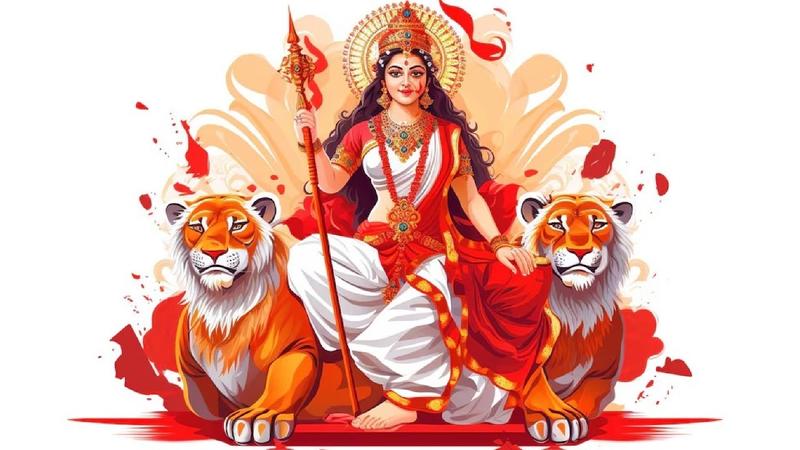Published 19:00 IST, October 7th 2024
The Origins of Navratri Fasting: Who Started the Tradition?
Fasting is a prominent feature of the nine-night festival, with devotees observing varying vrat styles. Know about the first to start the vrath traditions.

As Navratri unfolds from October 3 to October 12, India pulses with full-fledged celebrations. Communities gather for energetic dandiya dances, visit Durga pandals, and prepare effigies of Ravan for ceremonial burning. This joyous festival is steeped in rituals, prayers, fasting, new clothes, and the cherished Kanya pujan, making it a time of anticipation and reverence.

Why do people fast during Navratri ?
Fasting is a prominent feature of the nine-night festival, with devotees observing various types of vrats. Some choose a Nirjala fast, abstaining from both food and water, while others opt for a niraahar fast, consuming only liquids. Many follow a Sattvik diet, feasting on fruits, nuts, and specially permitted foods.
The motivations for these fasts are deeply spiritual. They are believed to cleanse the soul of sins, align one's energies with those of Maa Durga, and foster a light and relaxed state of mind for improved focus. The practice serves as a means of internal purification, allowing devotees to connect more profoundly with the divine.

Who is behind the fasting tradition of Navratri ?
Amid family discussions about the number of fasts to keep and the foods to prepare for breaking the fast, one might wonder: Who initiated the fasting tradition during Navratri ? The answer points to Lord Ram, the avatar of Lord Vishnu, known as Maryada Purushottam. Legend has it that Lord Ram was the first to observe fasts during Navratri , seeking the blessings of Maa Durga.

The story around Lord Ram’s fasting
Why did an avatar of Vishnu, revered for his strength, turn to Maa Durga for assistance? The answer lies in the formidable challenge posed by Ravan, the demon king of Lanka. Despite his evil nature, Ravan was a devout follower of Lord Shiva, possessing great powers due to his intense penance and the boons he received. For Lord Ram, defeating such a powerful adversary was no small feat.
To enhance his chances against Ravan, Lord Ram undertook fasting during Navratri to invoke Maa Durga’s blessings and fortify his resolve. This spiritual endeavor was crucial in equipping him with the strength needed to vanquish the demon king and rescue Mata Sita.

The First ‘Nirjala’ Vrat
Tradition holds that Lord Ram was also the first to practice the ‘Nirjala’ vrat, a form of fasting that prohibits food, grains, and even water. It is said that he observed this intense fast for nine consecutive days, seeking divine empowerment. His successful defeat of Ravan after these nine days of fasting marked a significant turning point, inspiring generations to observe similar fasts, including on Ekadashi.
Updated 19:01 IST, October 7th 2024



